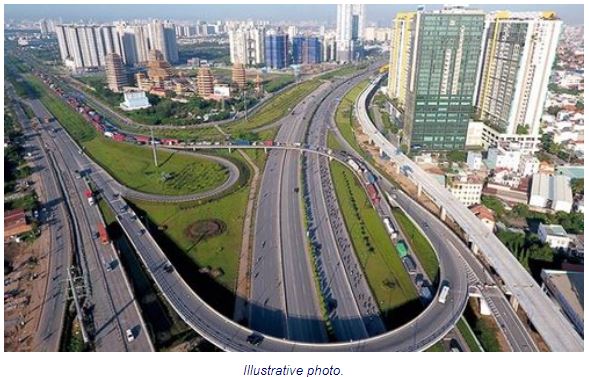Expert remains cautious about Vietnam’s economic prospect in 2019
High level of openness poses concern
The level of openness of the Vietnamese economy is one of the highest in the world, for which the sum of exports and imports in as per GDP is around 200%, Anh said at the conference Vietnam Business Outlook 2019 held by TheLEADER on November 4.
The Vietnamese economy, therefore, is more vulnerable to external shocks than others, Anh added. According to Anh, the US FED’s policy of interest rate hikes may pose negative impacts on Vietnam’s exports, while the ongoing trade war between the world’s two largest economies are causing concern among investors, indicating a decline in the investment capital.
Although Vietnam is considered an attractive destination for global investors, the capital inflow into Vietnam would surely be impacted, Anh stated.
Vietnam’s benefits from the US-China trade war also remain unclear, he added. The US incoming US$200-billion import tariffs against China target electronic devices, equipment, and furniture, which are fields Vietnamese enterprises could take advantage of. However, in 2017, Vietnam exported those goods in subject to the US worth only US$13 billion, which is a small fraction of Vietnam’s total export turnover.
Existing challenges hamper economic outlook
Anh expressed concern that Vietnam has been experiencing budget overspending over the last six years, in which total revenue is insufficient to cover regular spending and debt payment. This led to the fact that the government has to seek new debt to offset the budget deficit, putting huge pressure on Vietnamese economy.
Moreover, Vietnam still relies on credit growth and the FDI sector in a bid to achieve its growth target. In 2017, Vietnam’s export turnover reached US$214 billion, of which Samsung alone contributed over US$54 billion, accounting for one fourth of the total.
Anh also pointed to the existing bottlenecks of the economy, including policies, infrastructure and technology. As such, institutional reform should be the new growth engine for Vietnam’s economy, which, however, has not made any significant improvement.
Vietnam has to change its mindset to accept new things, which is important for the country to avoid “the middle-income trap”, Anh said, referring to the ongoing turf war between Grab and traditional taxi companies.
More importantly, the private sector has not been developed as expected, which currently contributes 9% to Vietnam’s GDP, the same rate recorded 15 years ago. Anh stressed more solutions are needed for this sector to flourish.
Another issue is Vietnam’s inefficient utilization of its bilateral and multilateral trade agreements. He emphasized that Vietnam have to maintain their export competitiveness and grasp opportunities in foreign markets, which are much harder than signing trade agreements.


 Thailand
Thailand




